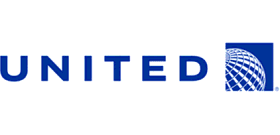 United will stop operating to Dakar
United will stop operating to Dakar
United Airlines has confirmed it will discontinue its Washington Dulles to Dakar route in early March 2026, marking a significant retreat from the West African market. The Star Alliance carrier launched this service less than a year ago in May 2025, deploying Boeing 767-300 aircraft on the 3,476-mile sector with three weekly frequencies throughout the year. The final departure is scheduled for March 4, 2026, leaving Delta Air Lines as the sole North American operator maintaining nonstop connectivity to Senegal's capital.
This withdrawal represents more than just a single route cancellation—it signals a fundamental shift in how major carriers evaluate emerging African markets against profitability benchmarks and operational constraints. United's decision arrives despite Senegal's growing profile as a gateway to francophone West Africa, raising questions about the viability of secondary U.S.-Africa routes in an increasingly competitive landscape. The move also highlights the challenges airlines face when attempting to establish footholds in markets where demand patterns remain unpredictable and seasonal fluctuations can dramatically impact load factors.
Delta's New York JFK-Dakar service will now stand alone among U.S. carriers, though Air Transat plans to enter the market in June 2026 with Montreal-Dakar flights using Airbus A321LR aircraft. This Canadian addition suggests that alternative North American gateways may offer different economics or passenger mix opportunities compared to traditional U.S. hubs. The Montreal connection could particularly appeal to francophone travelers and diaspora communities seeking more direct routing options between Canada and West Africa.
Historical context reveals that Dakar's long-haul connectivity has always been fragile. Air Senegal operated New York JFK-Dakar between 2021 and 2024 before suspending the route, while South African Airways previously linked Johannesburg-Dakar-Washington in a triangular service that disappeared during the pandemic upheaval. These repeated starts and stops suggest structural challenges in sustaining year-round operations, whether related to yield management, aircraft utilization, or insufficient corporate travel demand to balance leisure seasonality.
Market intelligence data from Sabre reveals that U.S.-Senegal origin-and-destination traffic totaled 124,285 passengers in 2024, with only 31 percent traveling nonstop. This relatively low direct travel percentage indicates that most passengers currently connect through European or African hubs, creating competitive pressure on pricing and convenience. The New York-Dakar city pair generated approximately 53,800 passengers, while Washington-Dakar accounted for nearly 13,600 travelers—a figure that apparently fell short of United's threshold for sustainable operations.
The suspension leaves Washington Dulles without any direct service to Senegal, though United will maintain four other African destinations during summer 2026. The carrier continues operating Cape Town from both Washington and Newark, Accra from Washington, Johannesburg from Newark, and Lagos from Washington. This portfolio suggests United remains committed to Africa's largest economies and most established business travel markets, while pulling back from experimental routes that haven't demonstrated sufficient revenue generation within their initial operating period.
For African travel professionals, this development carries multiple implications worth examining closely. First, it demonstrates that even major alliance carriers will quickly exit markets that underperform, regardless of diplomatic relationships or development potential. Second, it reinforces the reality that West African destinations beyond Nigeria and Ghana face uphill battles in securing direct North American service without government support or guaranteed traffic agreements. Third, it suggests that future U.S.-Africa route launches may increasingly favor southern and eastern African destinations where tourism infrastructure and business travel patterns have matured more substantially.
The timing of United's announcement also merits attention, coming as global aviation rebounds from pandemic disruptions and carriers reassess their international networks with fresh eyes. Airlines are increasingly prioritizing routes that deliver strong yields and consistent demand across both premium and economy cabins. Markets requiring extensive local promotion or facing significant competition from one-stop alternatives often struggle to meet these criteria, particularly when aircraft could be redeployed to more lucrative sectors.
United's official statement cited "regular schedule adjustments due to aircraft availability, market dynamics, and other operational factors" as reasons for the changes. This diplomatic language masks harder commercial realities—the Washington-Dakar route likely suffered from insufficient business class traffic, limited connecting opportunities beyond Dakar, and competition from European carriers offering competitive one-stop options through their hubs. The Boeing 767-300 deployed on the route, while efficient for medium-density long-haul operations, still requires substantial passenger volumes to achieve profitability on a three-times-weekly frequency.
Looking ahead, the question becomes whether any carrier will attempt to fill the void left by United's departure. African airlines themselves face their own constraints, including limited widebody fleets, restricted access to U.S. slots, and challenges in achieving the operational reliability that North American passengers expect. Air Senegal's previous attempt demonstrated these difficulties, while other West African carriers have yet to develop the financial strength and network scale necessary for sustained transatlantic operations.
The broader lesson for Africa's travel sector involves recognizing that international route development requires more than inaugural celebrations and government enthusiasm. Sustainable air service depends on robust two-way traffic flows, competitive pricing structures, reliable operations, and effective marketing to both leisure and business segments. Routes that rely too heavily on visiting friends and relatives traffic, without sufficient tourist or corporate demand, often prove vulnerable when carriers conduct periodic network reviews.
As United refocuses its African operations on proven markets, travel professionals across the continent should consider how to strengthen the commercial case for air service to their destinations. This includes developing tourism products that appeal to North American travelers, facilitating business connections that generate premium traffic, and working with airlines to understand their route profitability requirements. The Dakar suspension serves as a reminder that in today's competitive aviation environment, every route must continuously justify its existence through financial performance rather than strategic aspiration alone.
